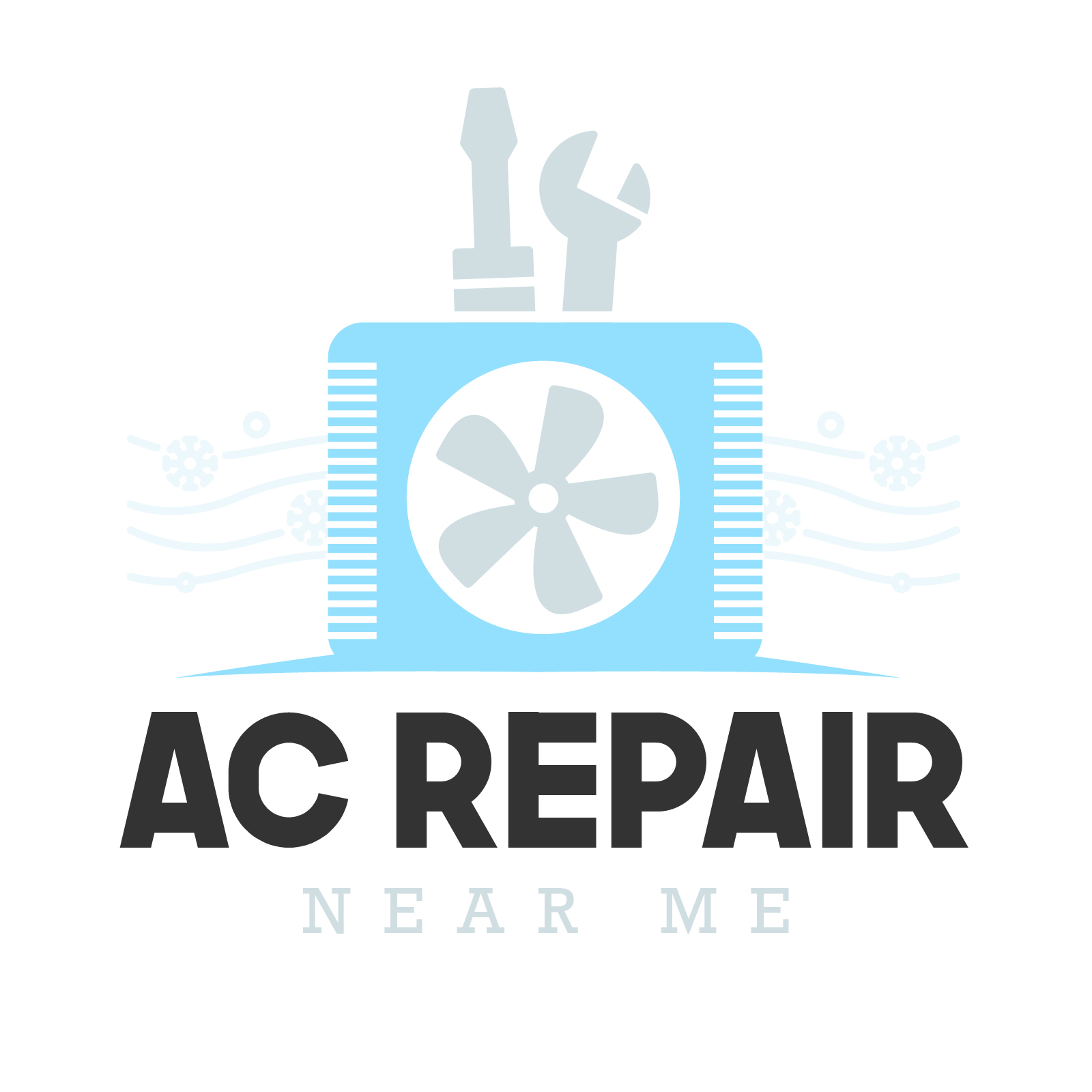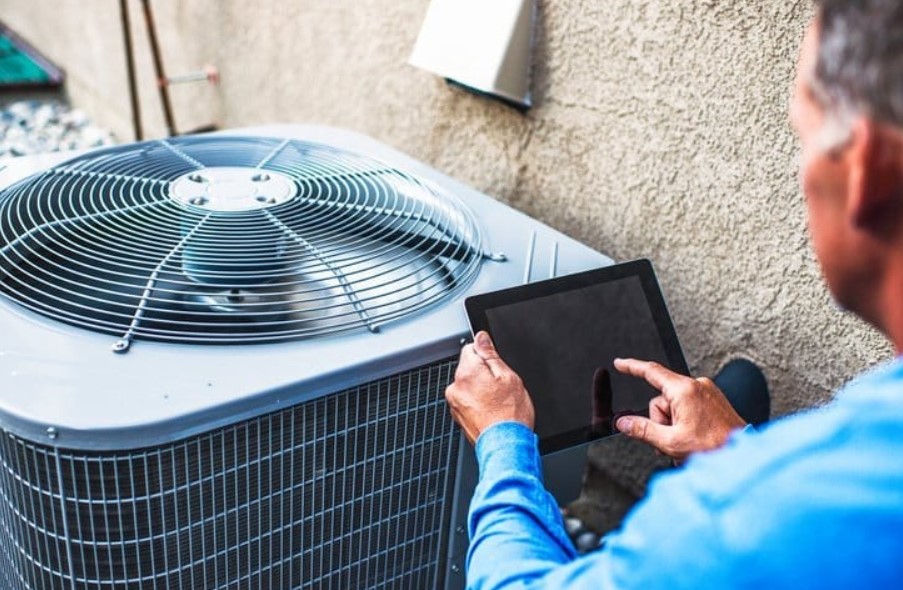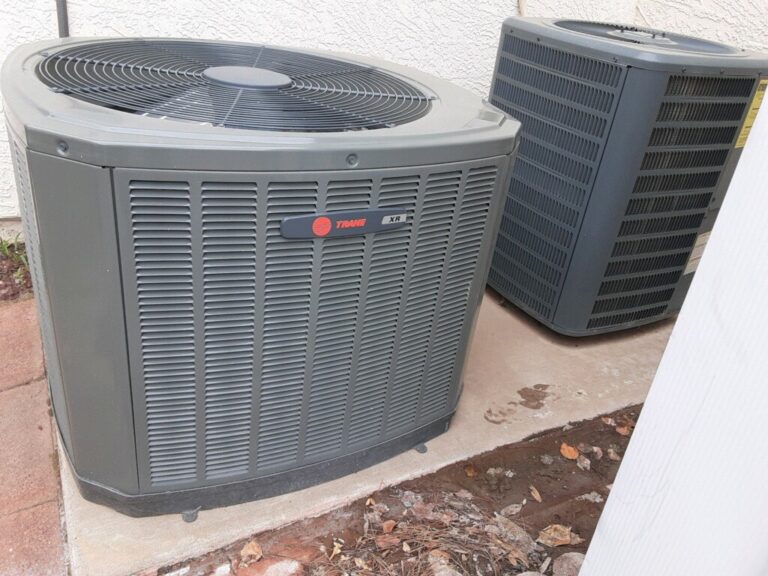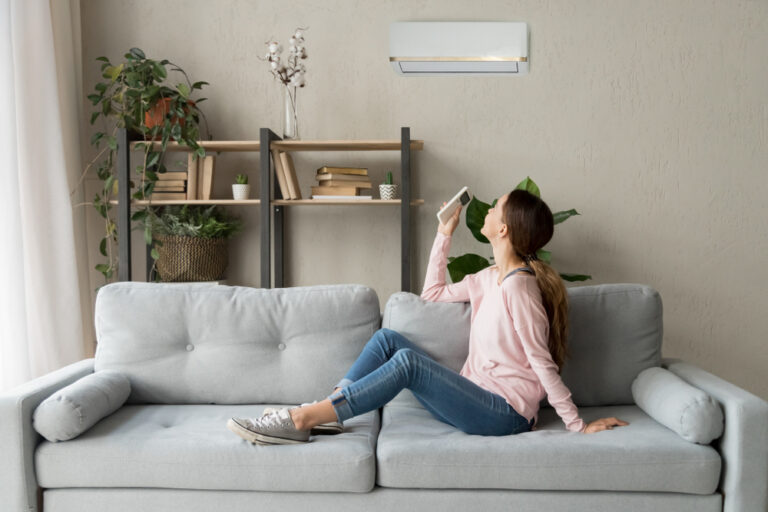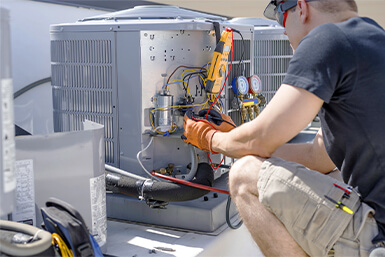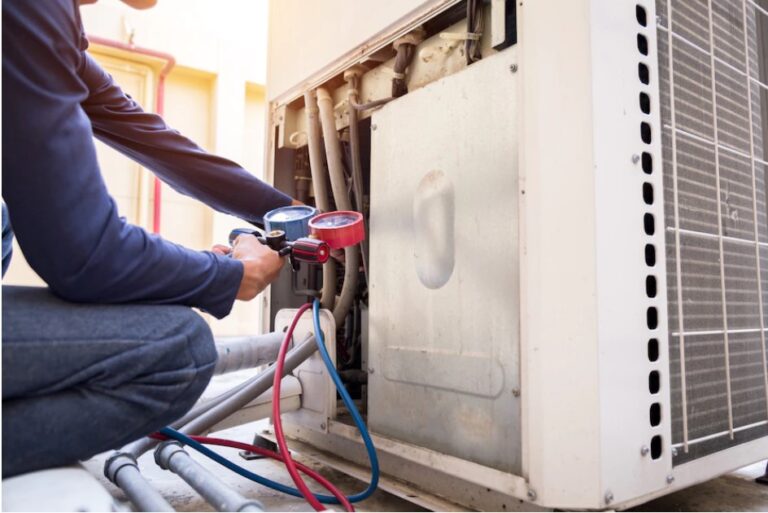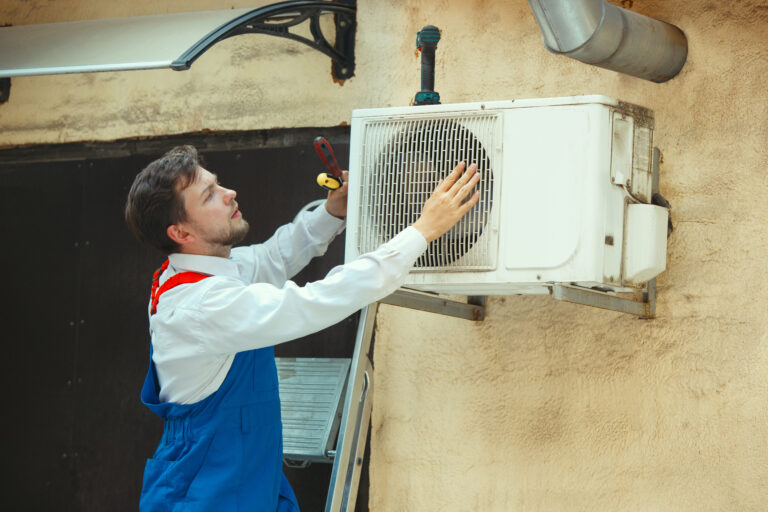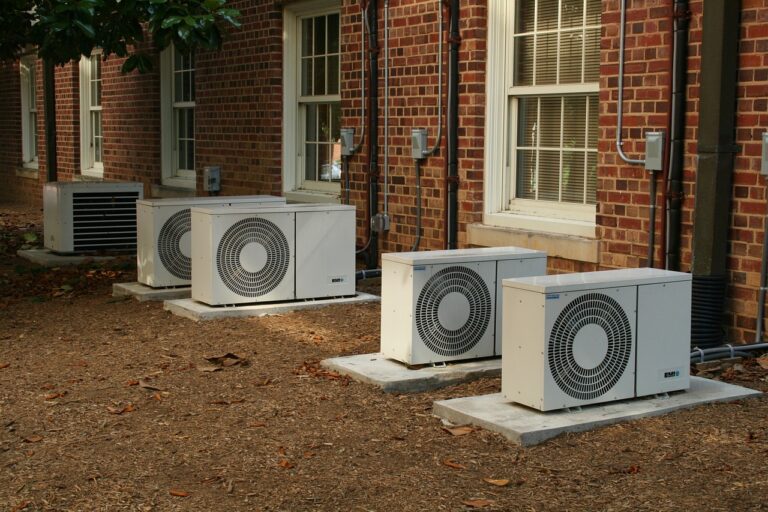The cost of replacing your HVAC system
Are you considering a HVAC system replacement? If so, you’re in luck! Our team of experts can help you find the best system for your home or business. We have a wide range of options to choose from, and our prices are unbeatable. So why wait? Give us a call today!
Why replace your HVAC system?
A new HVAC system is a significant investment, so you want to be sure that it’s the right decision for your home. Here are four reasons to replace your current system:
1. Improved Efficiency
Older HVAC systems can have efficiency ratings as low as 50%, while newer models boast efficiency ratings of 80% or more. That difference may not seem like much, but it can add up to significant savings on your energy bills over the lifetime of the unit. In fact, upgrading from a 50% efficient system to an 80% efficient one could save you hundreds of dollars per year in energy costs.
2. Enhanced Comfort
Not only will a new HVAC system operate more efficiently, but it will also do a better job of keeping your home comfortable. Newer units come with enhanced features such as variable-speed blowers and multi-stage heating and cooling that can help maintain consistent temperatures throughout your home while reducing hot and cold spots.
3. Lower Maintenance Costs
As your HVAC system ages, it will require more frequent repair and maintenance due to normal wear and tear on the unit. By replacing your old system with a new one, you can avoid those costly repairs and enjoy peace of mind knowing that your unit is covered by a warranty should any problems arise.
4) Cleaner Air
Newer HVAC systems come equipped with filters that do a much better job of trapping dust, pollen, and other airborne contaminants than older units. This means that you and your family can enjoy cleaner air inside your home while also helping to reduce allergies and respiratory problems
When to replace your HVAC system
It’s that time of year again. The weather is starting to get warmer and you find yourself turning on the AC more and more. But wait, is your AC unit up to the task? After all, it is one of the most important appliances in your home, responsible for keeping you cool and comfortable all summer long. If your AC unit is more than 10 years old, it might be time for a replacement. Here are a few things to keep in mind when deciding whether or not to replace your HVAC system.
1. The Age of Your Unit
The first thing to consider is the age of your unit. If it’s more than 10 years old, it’s probably time for an upgrade. Not only have HVAC technology and efficiency standards changed dramatically in the last 10 years, but also units tend to lose efficiency as they age. So if your unit is getting up there in years, it’s probably time for an upgrade.
2. Repair Costs
Another thing to consider is repair costs. If you’ve been shelling out money for repairs every year or two, that money could be better spent on a new, more efficient unit. In addition, older units may require parts that are no longer manufactured, making repairs even more expensive.
3. Energy Efficiency
As units age, they tend to lose efficiency, which means they use more energy to produce the same amount of cooling power as a newer model would use. This increased energy usage can add up quickly and end up costing you a lot of money over the life of the unit .So if you’re looking to save money on your energy bills , replacing an old inefficient unit with a newer one could be a wise decision . Newer units also come with much higher SEER (Seasonal Energy Efficiency Ratio) ratings , meaning they are significantly more efficient than older models . In fact , upgrading from an 8 SEER rating to a 16 SEER rating can save you hundreds of dollars every year on your energy bills .
4. Warranty Coverage Older units often times come with little or no warranty coverage , leaving you vulnerable to expensive repairs should something go wrong . Newer units usually come with comprehensive warranties that can protect you from having to pay for costly repairs down the road . When making the decision whether or not to replace your current HVAC system , these are just a few things t keep n mind . Ultimately ,the best way t make he right choice for your home s t consult with heating nd cooling professional who can help assess or specific situation nd recommend he best option for your home .
The cost of replacing your HVAC system
The cost of replacing your HVAC system can vary depending on the size of your home, the type of system you choose, and the contractor you hire. The average cost to replace an HVAC system is $3,500, but prices can range from $2,000 to $10,000 or more. If you’re considering replacing your HVAC system, here’s what you need to know about the costs involved.
The first thing to consider when budgeting for a new HVAC system is the size of your home. Heating and cooling needs vary based on square footage, so a smaller home will need a less powerful and less expensive system than a larger home. The next thing to consider is the type of system you want. There are several different types of HVAC systems available on the market today, and each has its own benefits and drawbacks. You’ll need to decide which type of system is right for your home before you can start shopping around for contractors.
Once you’ve decided on the size and type of system you need, it’s time to start getting quotes from contractors. Be sure to get at least three quotes from different companies before making a final decision. Ask each contractor about their experience installing HVAC systems, their warranty policy, and their price for installation. Make sure you understand all the terms and conditions before signing any contracts. With careful planning and research, you can find an affordable contractor who will install a high-quality HVAC system in your home.
The benefits of replacing your HVAC system
When it comes time to replace your HVAC system, the cost is often the first thing on your mind. But there are other factors to consider beyond the initial investment. A new, energy-efficient HVAC system can save you money in the long run by lowering your energy bills. It can also improve the indoor air quality of your home and increase its resale value.
If you’re thinking about replacing your HVAC system, here are some things to keep in mind:
1. The cost of a new HVAC system: Obviously, the cost of a new HVAC system is a major consideration when deciding whether or not to replace your current one. But it’s important to remember that the initial investment is just that – an investment. A new, energy-efficient HVAC system will save you money on your energy bills over time, so it’s important to factor that into your decision.
2. The benefits of a new HVAC system: In addition to saving you money on your energy bills, a new HVAC system can also improve the indoor air quality of your home and increase its resale value. If you’re concerned about either of these things, then replacing your old HVAC system may be a good idea.
3. When to replace your HVAC system: There’s no hard and fast rule for when to replace an old HVAC system. However, if it’s more than 10 years old or if it’s starting to break down frequently, then it’s probably time for an upgrade. Replacing an old and inefficient HVAC unit can make a big difference in terms of both comfort and utility costs . Depending on how much use y our current unit gets , as well as how high or low y our utility bills are , recouping y our investment could take several years . Nevertheless , many homeowners find that having newer , more efficient equipment pays for itself over time through lower monthly payments .
How to choose the right HVAC system for your home
There are a number of factors to consider when choosing the right HVAC system for your home. The first is the cost of replacement. The HVAC system is one of the most expensive systems in your home, so it is important to get it right the first time. There are a number of different types of HVAC systems on the market, so it is important to do your research and find the one that best suits your needs.
The second factor to consider is the size of your home. The larger your home, the more powerful your HVAC system will need to be. If you have a smaller home, you can save money by opting for a less powerful system. It is also important to consider the climate in which you live when choosing an HVAC system. If you live in an area with extreme temperatures, you will need a more powerful system than if you live in a milder climate.
The third factor to consider is your lifestyle. If you have allergies or asthma, you will need an HVAC system that can remove allergens from the air. If you have pets, you will need an HVAC system that can filter out pet dander. And if you smoke cigarettes, you will need an HAVC system that can remove smoke from the air.
Finally, it is important to consult with a professional before making any final decisions about your HAVC system. A professional can help you determine which type of system would be best for your home and lifestyle and can provide installation services as well.*
How to get the most out of your new HVAC system
If you’ve just replaced your HVAC system, congratulations! A new HVAC system is a significant investment, so you’ll want to make sure you get the most out of it. Here are four tips to help you do just that:
1. Get regular maintenance
To keep your new HVAC system running smoothly and efficiently, it’s important to get regular maintenance. This means having a professional come in at least once a year to clean and inspect the system. This will help prevent problems down the road and keep your energy bills low.
2. Change your filters regularly
Another important part of maintaining your HVAC system is changing the filters regularly. Depending on the type of filter you have, you may need to change it every month or two. This is an easy task that you can do yourself, and it will help prolong the life of your system.
3. Use energy-saving features
Many newer HVAC systems come with energy-saving features like programmable thermostats and zoning capabilities. If yours has these features, be sure to take advantage of them! Using them properly can help reduce your energy consumption and lower your bills even further.
4. Know when to upgrade again
Although a new HVAC system should last for many years, eventually it will need to be replaced again. Keep an eye on how often you use it, how much energy it’s consuming, and whether or not it’s still providing good indoor air quality. If any of these start declining, it may be time for an upgrade.
Tips for maintaining your HVAC system
1. Get an annual tune-up. Just like your car, your HVAC system needs regular maintenance to run at peak efficiency. You can save money on your energy bills and extend the lifespan of your system by investing in an annual tune-up.
2. Keep the area around your unit clean and clear. Your HVAC system needs airflow to work properly, so make sure there are no obstructions around your unit. This includes keeping the area around the unit free of debris, such as leaves and branches.
3. Replace your air filters regularly. Your air filters play a vital role in protecting your HVAC system from dust and dirt particles that can clog it up over time. Check them monthly and replace them as needed – most filters should be replaced every three months or so.
4. Invest in a programmable thermostat . A programmable thermostat can help you save money on your energy bill by allowing you to set different temperatures for different times of day (such as when you’re home and when you’re away).
5 . Know when to replace your system . Even with proper maintenance, eventually all HVAC systems will need to be replaced . The average lifespan of an HVAC system is about 15 years , so if yours is approaching that age , it may be time for an upgrade .
